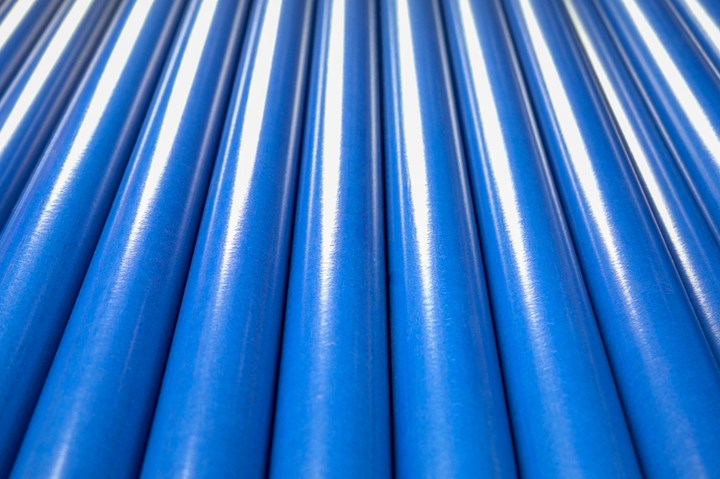Exel Composites launches anti-viral composite solution
Anti-viral additive impregnated into composite profiles during manufacture, reducing viral loads on material surfaces.
Share

Photo Credit: Exel Composites
Global composites manufacturer, Exel Composites (Vantaa, Finland), has launched its anti-viral Protector solution, which the company says has been proven to reduce viral loads on composite material surfaces, including COVID-19. Results have demonstrated a 99.44% reduction in viral load after one hour, and 99.99% after 24 hours, compared to untreated composites.
The solution consists of an anti-viral additive that is mixed into the composites’ resin during the manufacturing process for Exel’s composite profiles. Ensuring consistent distribution throughout the resin, the additive permeates the composite to provide protection against viruses throughout the material’s lifecycle.
Exel says it sent material samples to an independent third-party laboratory that specializes in bacteriology, virology and industrial microbiology. Here, the samples were tested according to ISO 21702:2019, the measurement of antiviral activity on plastics and other non-porous surfaces. The findings reportedly show a significant reduction of the 229E strain of COVID-19 on Exel’s composite Protector samples.
“The COVID-19 pandemic has highlighted the importance of anti-viral solutions and precautions that must be taken with all viruses,” says Kim Sjödahl, SVP Technology and R&D at Exel Composites. “Hand sanitizers and disinfectant products have now blended into our daily lives. However, manufacturing anti-viral surface materials can easily heighten anti-viral protection in a range of sectors. Our Protector composites reduce the viral load and provide additional protection that can be used in areas where there are high levels of bacteria accumulation. This includes handrails on public transport, and equipment handles in cleaning and maintenance applications.
“A significant benefit of our anti-viral solution is that the additive acts as a built-in layer of defense within the material,” continues Sjödahl. “The additive working in the resin ensures durability and reliability of the anti-viral protection, as its effectiveness does not decline over time — a common disadvantage of alternative surface treatments such as sprays, coatings and foils. Even if the composite is scratched, the anti-viral protection remains unaffected.”
Exel Composites says it has an established portfolio of composite solutions to meet a variety of industry requirements, ranging from turbine blades to window frames. The Protector solution can be incorporated into the manufacturing of any composite profile manufactured by Exel.
“Our solution does not affect the pigmentation, texture, mechanical or structural properties of the material,” adds Sjödahl. “This means it can be applied to any composite product for any industry. Exel Protector is a remarkable step forwards in our product offering, demonstrating a significant reduction in the spread of contagious diseases. With this, we hope to help improve the safety of people across the globe.”















